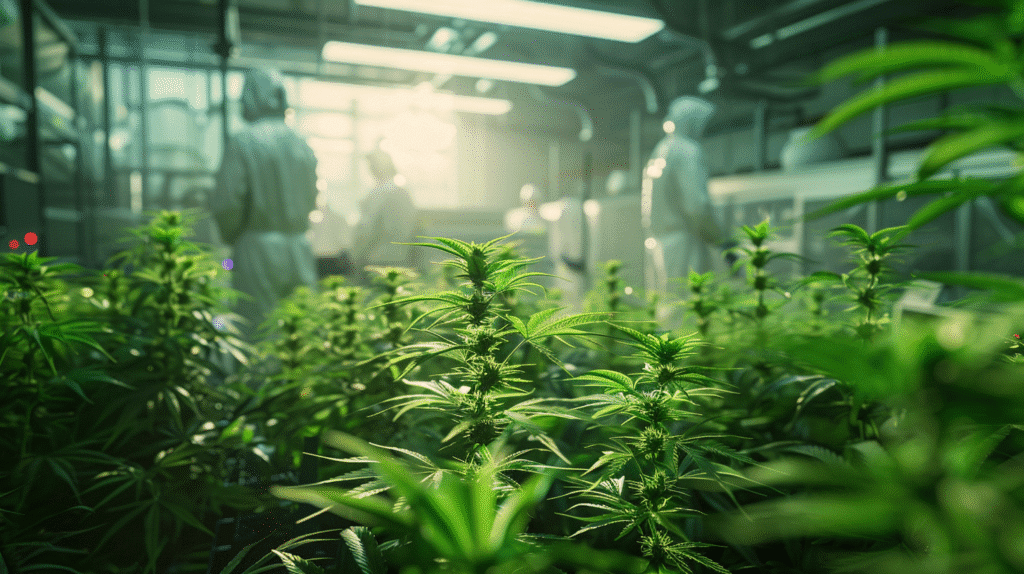International Study Shows Medical Cannabis Cuts Tobacco And Amphetamine Use

Historic 20-nation research uncovers that medical cannabis legalization generates “strong negative associations” between cannabis and tobacco, and cannabis and amphetamine use, indicating citizens replace cannabis with more dangerous drugs. Medical cannabis markets sold an average 26 tons per year in legal nations, and evidence suggests long-term economic gains and healthier population-level decisions.
Adapted in the Journal of Cannabis Research, the information also represents, to this day, the largest cross-national study of medical cannabis legalization impacts, as it examined data from 14 countries allowing legal medical programs and six without such programs in place.
Using complex statistical modeling including fixed-effects regression and dynamic difference-in-differences estimation, researchers observed medical cannabis markets’ impacts on aggregate substance trajectories over time.
The research defies long-held “gateway drug” fears by showing the reverse: as medical cannabis becomes legal, tobacco use declines substantially and amphetamine consumption also diminishes.
The research established that every 1% jump in smoking prevalence corresponded to 8.6 fewer tons per annum of medical cannabis sales, and increased prevalence of amphetamines corresponded to 10.5 tons per 1 percentage point increase in sales decline.
Medical markets, on the other hand, thrived in nations with pre-existing recreational cannabis culture, as 1% increments in recreational consumption corresponded to an extra 4 tons in medical sales.
For policy-makers worldwide, this offers robust evidence to demonstrate medical cannabis legalization does not encourage illicit drug use but instead appears to reduce stimulants and tobacco dependence—both of these being proven health threats. The scope of these findings extends beyond health policy to economic development, whereby subsequent market growth provides jobs and tax base potential in signing nations.
Source: marijuanamoment.net
UNESCO Puts Cannabis On Global Cultural Stage For First Time In History

UNESCO’s cultural policy flagship event, for the first time in history, will shine the spotlight on cannabis to commemorate 100 years of international prohibition and in recognition of expanding acknowledgement of cannabis as rightful cultural heritage. The World Conference on Sustainable Development and Cultural Policies signifies an unprecedented move away from criminalisation to cultural tolerance at international governance’s pinnacle level.
From September 29-October 1, 2025 MONDIACULT Barcelona gathers delegations of UNESCO’s 194 states to map global agendas for future decades. Two civil society representatives—FAAAT (Forum Drugs Mediterranean) and Cannabis Embassy—managed to deposit official statements placing cannabis cultural traditions in UNESCO post-2030 development framework deliberations.
Their technical note “Cannabis: A Plant Without Borders. Cultural Diagnosis, One Hundred Years After Its Prohibition” discusses how cannabis communities safeguard intangible cultural heritage.
The date holds great symbolic significance, coming at precisely 100 years after cannabis was introduced to the Brussels International Pharmacopoeia treaty while at the same time being classified as an international “narcotic.”
This double inheritance formed the basis of prohibition law upon which campaigners insist has systematically dismantled global cannabis cultural practices, most notably upon Indigenous people whose practices Article 49 of the Single Convention on Narcotic Drugs were singled out for prohibition.
The inclusion represents wider international drive from prohibition to cultural recognition, following cannabis reform victories such as the UN’s 2020 decision to reschedule cannabis. As the 2030 Sustainable Development Agenda reaches its end, this meeting offers an unprecedented chance to bring cannabis-associated practices into wider heritage and sustainability templates for the coming UN development plan.
Source: businessofcannabis.com
NHS Medical Cannabis Access Could Generate £13.3 Billion Economic Boost

Expanding NHS access to medical cannabis could add £13.3 billion to the UK economy over a decade while helping thousands with chronic conditions return to work, according to new economic analysis. The research suggests a 28% reduction in hospital admissions for eligible patients alongside massive productivity gains from people re-entering the workforce.
Centre for Economics and Business Research research, commissioned by Curaleaf Clinic, revealed that private medical cannabis prescriptions have to date added £283 million in Gross Value Added since 2018 legalization by enabling recoveries and restoration to work for people. Nevertheless, an estimated 2.8 million citizens in the UK remain excluded from jobs as long-term illnesses keep holding them back, and most of these have run out of conventional treatment plans.
NHS access to cannabis economic modeling would generate £1.3 billion per annum, £4.5 billion over five years, and £13.3 billion over ten years as an indirect consequence of rising labor market participation and cutting sickness-related absence. The patients treated would experience 4.4 fewer sick days per year, and lower hospital admission could reduce healthcare expenditure and ease pressures on stretched services.
Surveys in combination with research revealed concerning patient awareness and access gaps. Sixty-two percent of those out of work due to disease and medication report all established treatment options have been pursued, 55% report present medication provides little assistance, and 48% report negative effects on quality of life. Additionally, 40% remain unclear as to whether medical cannabis is in legal supply, and 33% regard the NHS regime as confusing.
The study urges proper commissioning advice, increased government support for clinical research, training on the endocannabinoid system for healthcare workers, and supply chain reforms to minimize expenditures. As one patient remarked, medical cannabis restored her independence after long-term pain had “stripped away” her sense of self and capacity to work.
Source: cannabishealthnews.co.uk
Scientists Reveal What Really Makes Cannabis Strains Smell So Different

Historic Journal of Agriculture and Food Chemistry study finds small, non-terpene molecules—not terpenes, long shunned for cannabis scents—really drive characteristic odors between strains. Sensory-guided analysis identified dozens of idiosyncratic, hitherto unrecognized chemicals responsible for anything from “sweaty” to “popcorn”-like odors in dried cannabis flowers.
The research is also the first exhaustive sensory-guided exploration of cannabis odor-active compounds, and it pushes scientific knowledge considerably beyond the usual terpene, CBD, and THC focus.
The scientists used advanced smell-testing and chemical analysis to identify the tiny compounds released by the flowers — and to figure out which ones actually affect what people can smell.
The research technique, more commonly associated with food science than cannabis research, demonstrated conclusively that just a small percentage of volatiles play a role in overall aroma perception.
Although common terpenes like α-pinene, myrcene, and linalool were involved, research demonstrated specific odorant molecules bearing sulfur, notorious for their pungency, to significantly comprise the smell of cannabis.
For the first time, researchers uncovered two powerful aroma compounds hidden in dried flowers. Their study revealed how different natural chemicals shape the fragrance we experience: some give off sweaty, tangy notes, others release the warm scent of buttery popcorn, while a few bring out earthy, peppery tones. Together, these surprising discoveries paint a vivid picture of the hidden chemistry behind a flower’s smell.
This study could revolutionize cannabis breeding by enabling growers to breed for preferred aromatic profiles just as in wine or coffee industries.
Rather than breeding crops based on misleading strain names, growers would breed for certain chemical signatures to deliver preferred sensory experiences. The study also details why commonly used cannabis strain systems of labelling can be notoriously misleading—the legitimate aromatic compounds that do matter have been neglected in large part.
Source: pubs.acs.org
Czech Republic Drives European Cannabis Export Boom While Preparing For Adult Use

The Czech Republic has become an aspiring European cannabis export behemoth, cultivating over 4,660 kg of medical cannabis in 2024, most of which were exported to Germany, while simultaneously gearing up for adult-use decriminalization to launch in 2026, come January 1st. The two victories demonstrate how cannabis policy can bring economic potential as it expands patient access.
Czech pharmaceuticals like Lagom Pharmatech have 65 employees and production of over four tonnes annually, all of which end up in German medical markets as sales there continue to increase.
The exporting success also reflects Prague’s strategic location as German pharmacies dispense an average 34 times as much medical cannabis per capita as those in the Czech Republic. Over 1,300 kg sent to Germany in 2024 made it one of Europe’s foremost exporters, creating valuable domestic jobs.
The future decriminalization is one of Europe’s most liberal cannabis laws, allowing adults 21 and older to grow three plants and maintain as much as 100 grams at home, 25 grams in public.
While earlier versions had-envisioned cannabis social clubs and retail shops, those ambitious plans have been shelved. The policy adheres to Germany’s Cannabis Act model, reflecting European-wide support for evidence-based reform.
Medicinal access has also been broadened to include patients suffering from intense pain as of April 2025, and health insurance support keeps costs at €8 per gram for patients.
The Czech government also implemented their Psychomodulatory Substances Act, allowing regulated sales of low-THC cannabis (less than 1%) and kratom from July 2025.
Plans to license medical psilocybin would make the Czech Republic the first European country to have access to psychedelic medicine in regulated form, and it would be a continent-wide first in liberal drug policy reform.
Source: businessofcannabis.com


